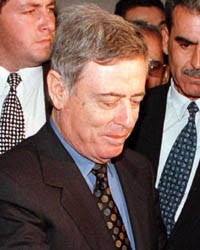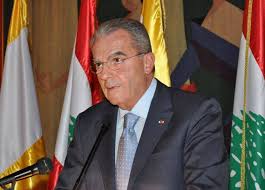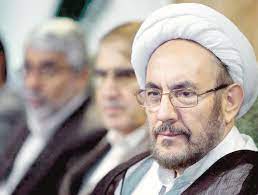Syrian Vice President warned of the dangers of “dividing Iraq and tearing apart the Middle East,” considering it an unprecedented situation since World War II. He believed that such a goal aligns with Israel’s strategic objective of seeing a fragmented and weak Arab world. He emphasized the importance of Iraq’s unity for the benefit of the country itself and its neighboring nations.
Khaddam, during a press conference held in Paris after his discussions with French President Jacques Chirac, stated that a U.S. operation against Iraq would put the oil resources in the Middle East under American control.
Khaddam questioned the undisclosed reasons behind the military action against Iraq, and he did not rule out the possibility that the true objective was to “control the energy sources” in the region.
He added that a military operation against Iraq would have serious consequences not only for Iraq but also for the entire region and possibly beyond. The Syrian Vice President stated, “In the past, we opposed Iraq because it invaded Kuwait, but today we defend it because it is threatened by invasion.” Khaddam highlighted that a military action against Iraq would set a dangerous precedent in international relations by allowing a state to launch a military operation against another country to alter its situation.
After mentioning the opposition of Arab countries and several other nations to a military operation against Iraq, Khaddam affirmed that “the neighboring countries do not consider Iraq as a threat.” He further stated, “There is no ethical or political justification for a military action against Iraq, which has been under strict sanctions for over ten years and does not possess weapons of mass destruction.”
Responding to a question about describing the Iraqi regime as “dictatorial,” Khaddam questioned, “Why weren’t these terms used during the Iraq-Iran war?”
Khaddam believed that the issue of the return of United Nations weapons inspectors to Iraq is part of the whole process. He emphasized the importance of determining what has been accomplished and what remains to be done regarding the disarmament of Iraq. He stated that Baghdad has the right to know its fate after the inspectors’ work is completed.
It is worth noting that Syria stood alongside the coalition forces led by the United States to expel Iraqi forces from Kuwait after the Iraqi invasion in 1990. Since 1997, the relations between Damascus and Baghdad have witnessed significant improvement. The United States has repeatedly announced its intention to change the regime in Baghdad and establish a new system that does not possess weapons of mass destruction and does not pose a threat to its neighbors.



